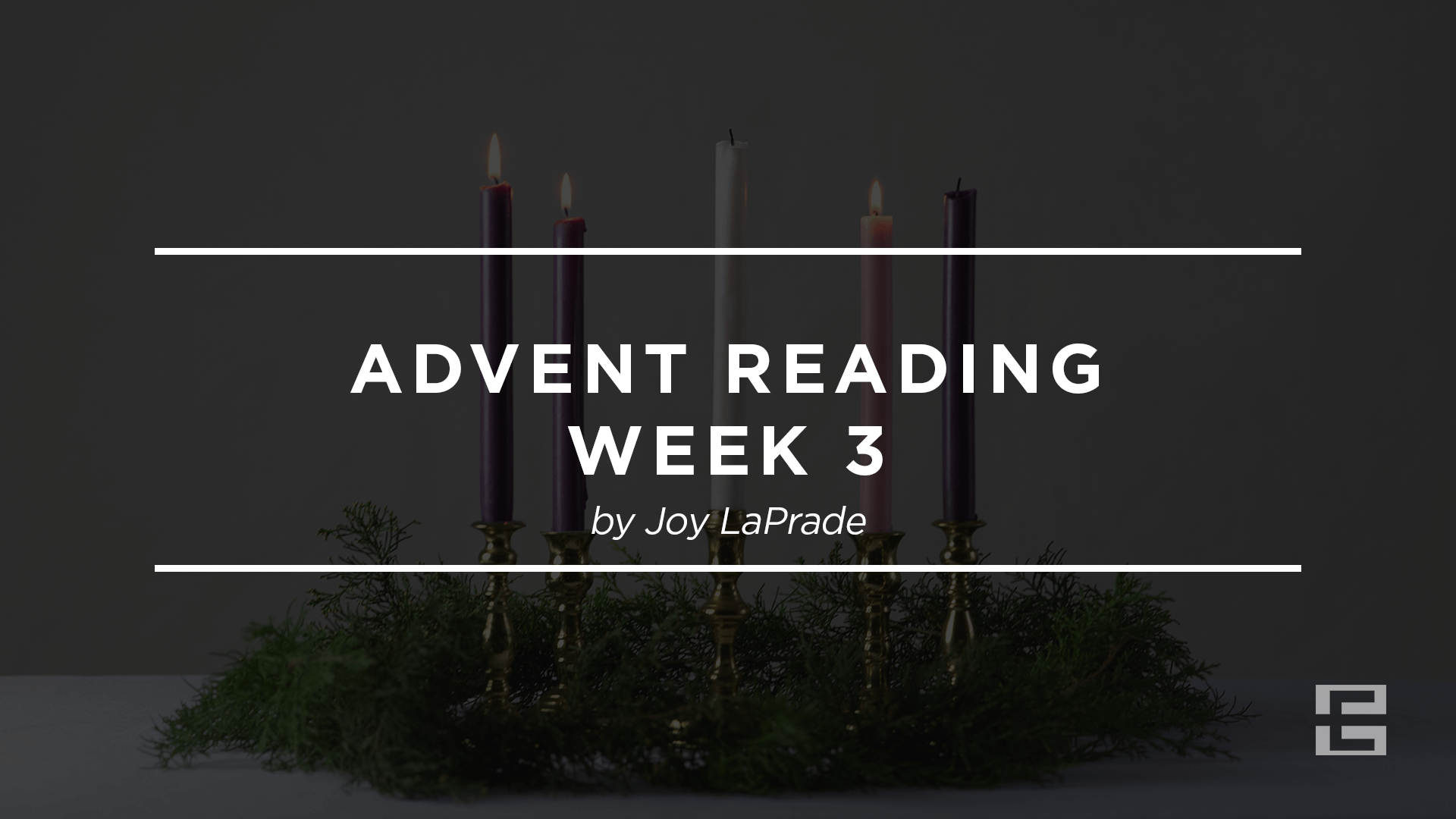A guest post by Joy LaPrade…
“And he said to her, ‘Daughter, your faith has made you well; go in peace, and be healed of your disease.'”
I need to have faith like that. For most of my life, this was the message I took from that story. Since Jesus commends her faith, we should try to develop the same kind.
My understanding of this story turned on a definition of “faith” that I’d learned growing up in church. Faith is a trusting confidence and belief that should get bigger and stronger as we grow.
But recently, when I read the story again, I was confused. The more I looked at the woman, the less she seemed the hero of faith I’d always assumed she was.
Through the first chapters of Mark, Jesus is followed by growing crowds. But rather than encourage this, He tells people to keep His miracles a secret. His fame will draw people who come for the spectacles of healing, but miss the truth of Jesus’ teaching. He wants to make disciples, not just collect followers.
The woman in Mark 5 seems like part of these crowds. The story doesn’t show her seeking a relationship with Jesus. Instead, it appears her goal is to get healed and get away without anyone noticing. Since she was ceremonially unclean by Jewish custom, she would have made Jesus unclean by her touch, and many others as she pushed through the crowd.
This made me doubt my assumptions. Would a great faith sneak up behind Jesus like that? Wasn’t she a little selfish to risk making others unclean in her search for healing? Her actions seemed not confident, but desperate.
Yet, Jesus says her faith has made her well. So where is her faith?
It’s hard to see. In fact, it’s tiny, like a mustard seed. She only believed in Jesus as her last chance for healing.
Looking at what happens next, I saw how my definition of faith was wrong. It’s not an ever-growing confidence and trust—though in some senses this is true–but something that looks more like desperation, reaching out for Jesus when we’ve come to the end of ourselves.
He transformed that faith into something much greater, like a mustard seed growing into a huge tree.
The woman came to Jesus grasping for her last chance to be well. Jesus called that faith. He wasn’t commending her effort so much as recognizing that God had revealed the truth to her: Jesus was her only hope.
By thinking of faith as something the woman produced, I was forgetting the truth: “this is not your own doing; it is the gift of God.”
And just as we can’t create faith on our own, we aren’t able to make it stronger either.
If Jesus hadn’t turned around, the woman’s faith would probably have ended where it began, believing in Him only as miracle worker. She was healed, and she was satisfied. But Jesus wanted to give her more.
He sought her out in the crowd when she was running away, and brought her into relationship with Him. He called her “daughter.” He told her she hadn’t just been healed of her disease but “made well,” which seems to indicate salvation.
She came to Jesus trusting in Him only as healer, but He transformed that faith into something much greater, like a mustard seed growing into a huge tree.
Faith is a gift from beginning to end. The woman was given grace to feel her helplessness and the grace to run to Jesus for healing. Then, He gave her grace beyond what she ever could have imagined.
What a good and generous Savior! The woman’s faith isn’t what we need to focus on in this story, but rather what Jesus does with it.
Just as five loaves and two fish were totally insufficient to feed the 5,000, any faith we produce on our own can do nothing. But Jesus takes our insignificant offering and makes it something more than we could have asked for.
I do need to have faith like the woman who was healed—but not because it is strong and confident and worthy of approval. Instead, I need to see again and again that I am desperately sick, and that I have a Healer.



